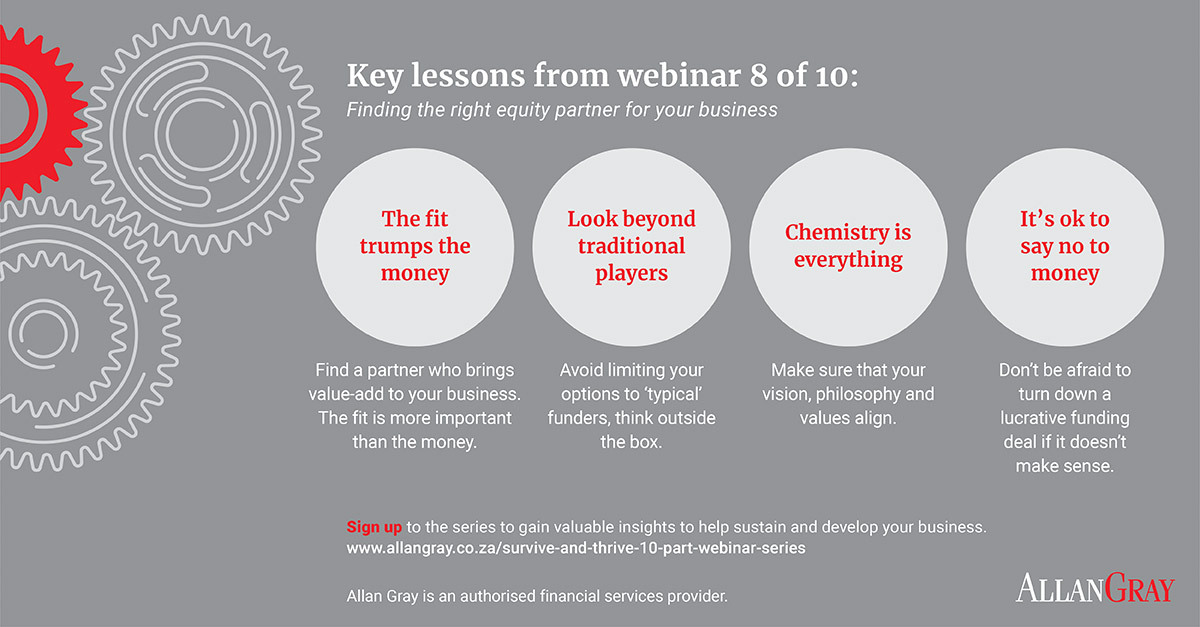In the eighth of 10 webinars in the Survive and thrive series, brought to you by the Allan Gray Umbrella Retirement Fund, we examine the matters business owners should consider in order to secure the right fit in an equity partner. Watch the webinar recording of “Finding the right equity partner for your business” below.
Key takeouts
SweepSouth CEO and co-founder, Aisha Pandor, Zulzi CEO and co-founder, Donald Valoyi, and Manuel Koser, founding partner of investment firm, Silvertree Holdings, share important things to consider when you are pursuing financial backing to help grow your business.
The fit trumps the money
Having completed four rounds of funding, as well as a round of bridge funding for her business, Pandor acknowledges the importance of capital for growth, but she says that finding an equity partner goes beyond the capital itself. Sometimes finding the right fit with a potential investor can be more about the strategic value-add that a partner brings to the table, and skills that can be leveraged for growth, and less about the money.
“We’ve always gone back to: Can they provide strategic support, insights and experience?”
Look beyond traditional players
There are various funding models available to entrepreneurs seeking capital, and while venture capitalist and angel investor funding tend to be the most sought-after options, these are not the best routes for all businesses to pursue.
Pandor says entrepreneurs should think outside the box when it comes to the search for an equity partner and look for atypical funders who might make for a better fit. In the process of identifying atypical funders, she advises entrepreneurs to ask two questions: How much funding do I need and what type of investor do I need to bring on at this stage of the business? The answers to these questions will help to add some structure to your search.
Chemistry is everything
Entering an equity partnership is much like getting married and, as such, Koser says it is important to determine, from the onset, whether your vision, philosophy and values are aligned.
“Ask ‘are we walking towards the same direction?’ because if not, that’s impossible to change and you will have a very hard marriage, and ultimately it will end in a messy divorce. Rather don’t date at that stage,” he advises.
Ultimately it comes down to whether you ‘get’ each other.
It’s ok to say no to money
While it might seem counterproductive to reject capital when you’re in pursuit of funding, in some cases it makes sense, and it may be in your best interest to turn down a very tempting offer. Valoyi shares how he said no to funding that was ready for immediate release – capital that could have prevented his team from being evicted from their office space the following day – because the fit was not right.
“It was a difficult conversation at the time, but it wasn’t the right fit and we had to turn it down. It’s not always about the money, the fit is more important than the money in most cases. You also have to look at the kind of influence that partner will have over your business. If they’re going to take it in a direction you’re not headed, that is a problem, and you have to turn it down, no matter how much it is,” concludes Valoyi.
